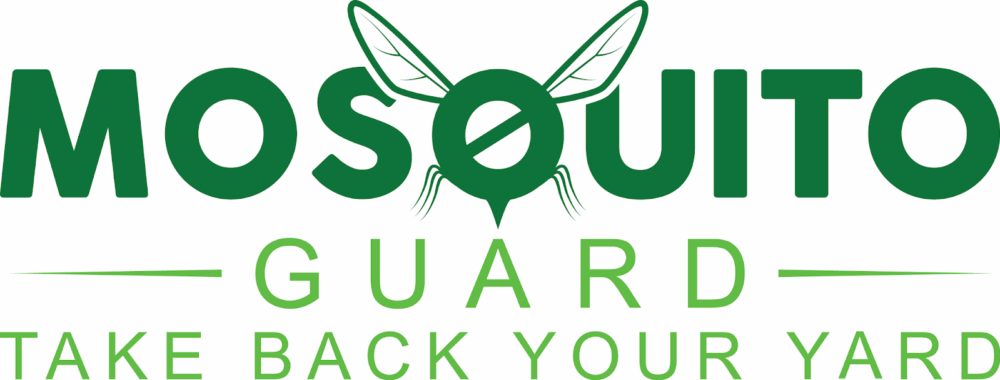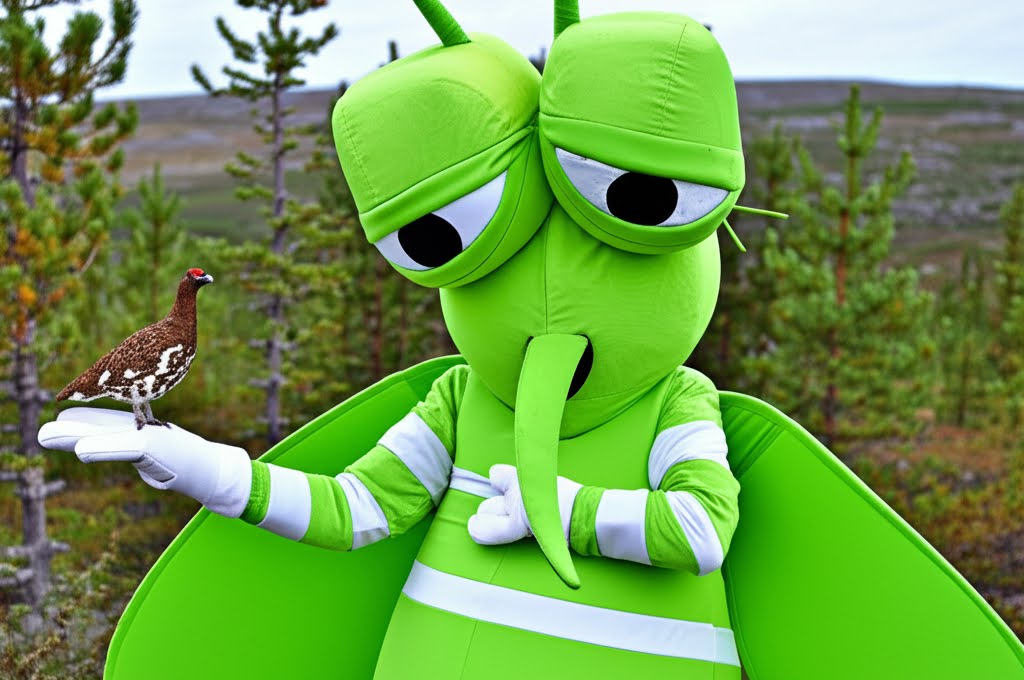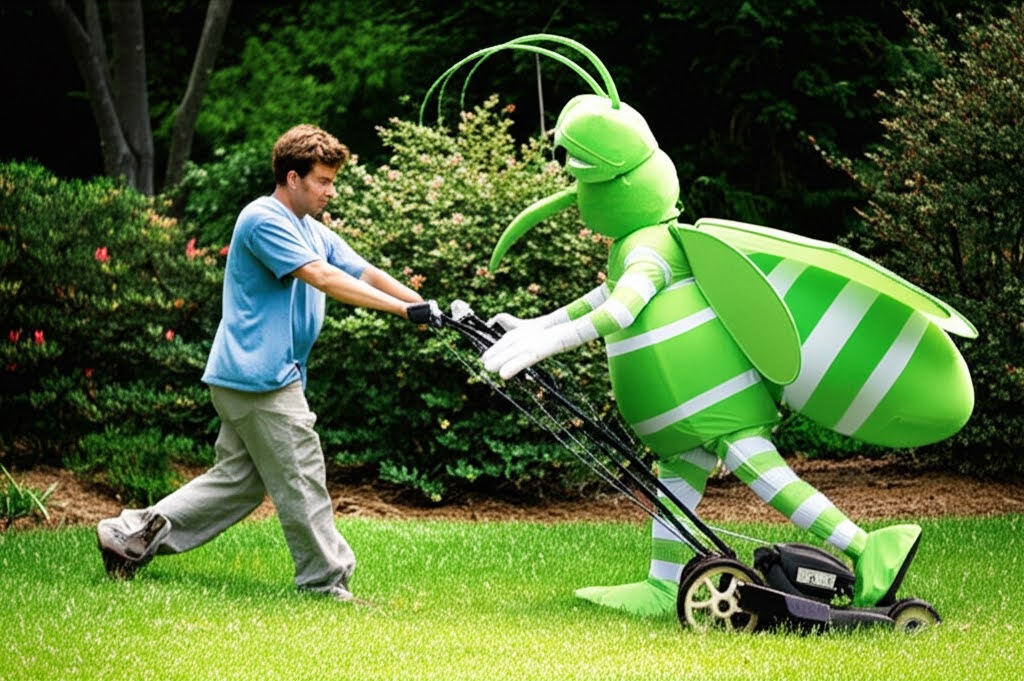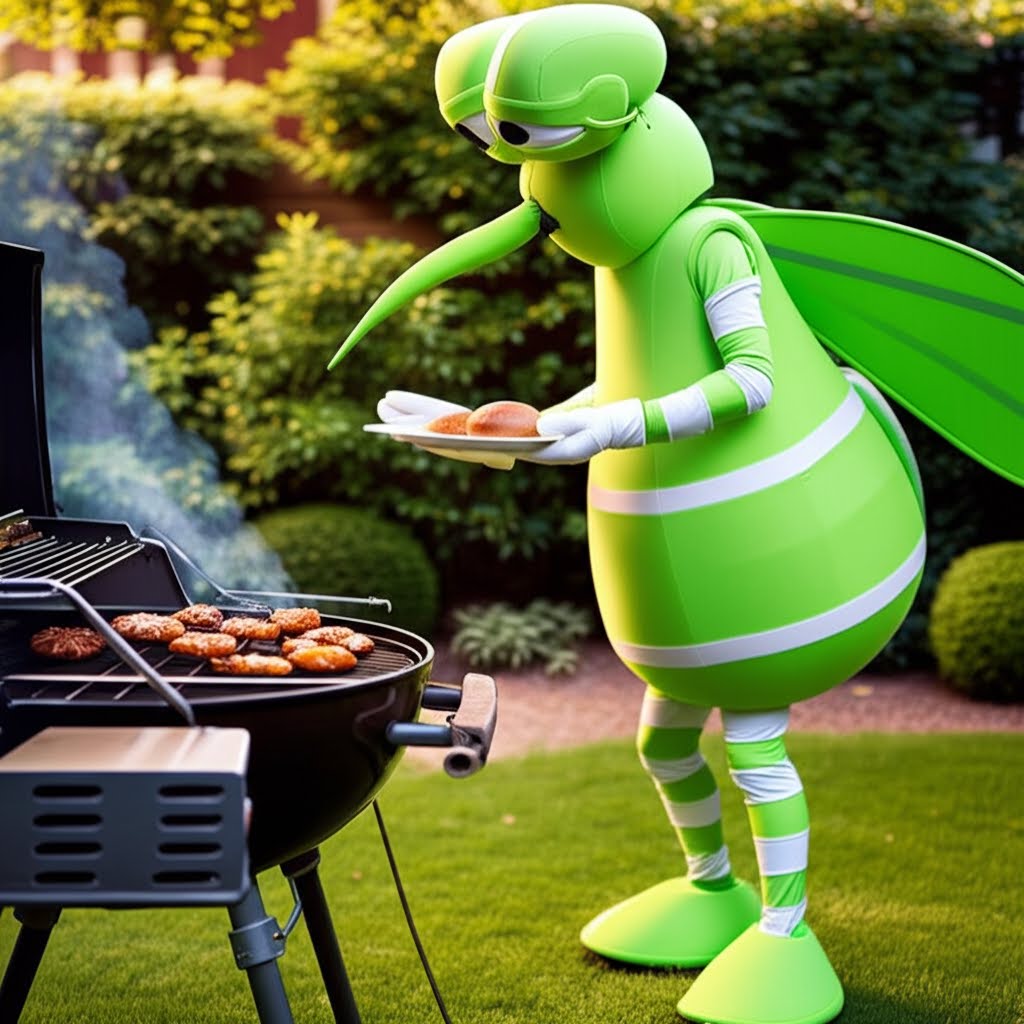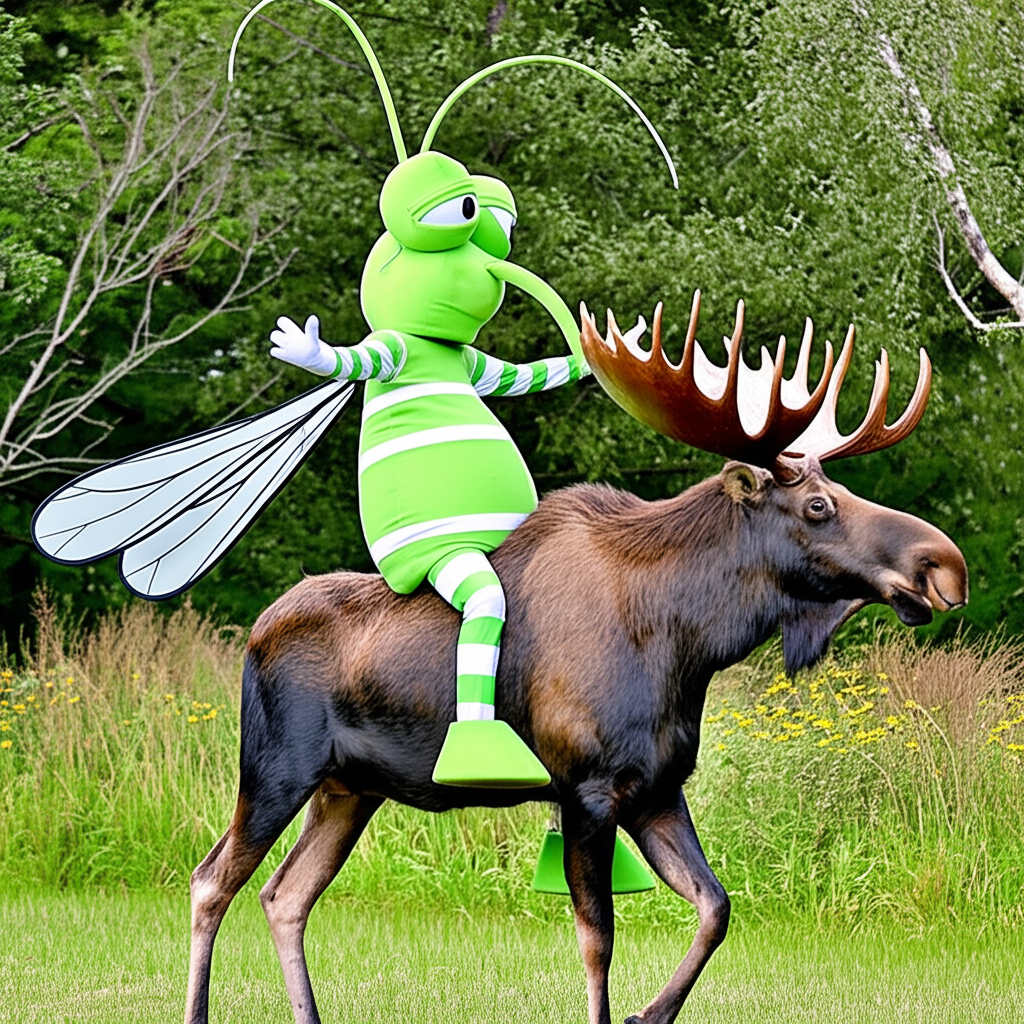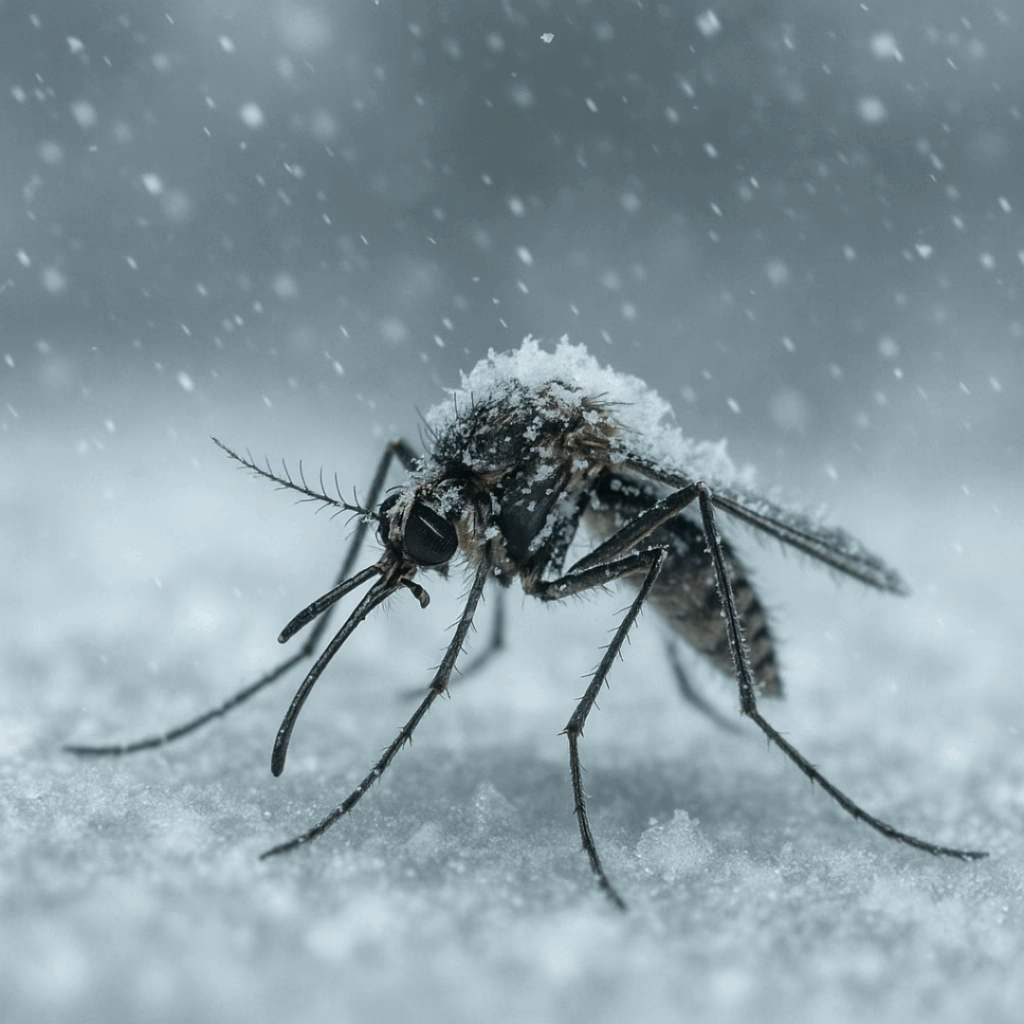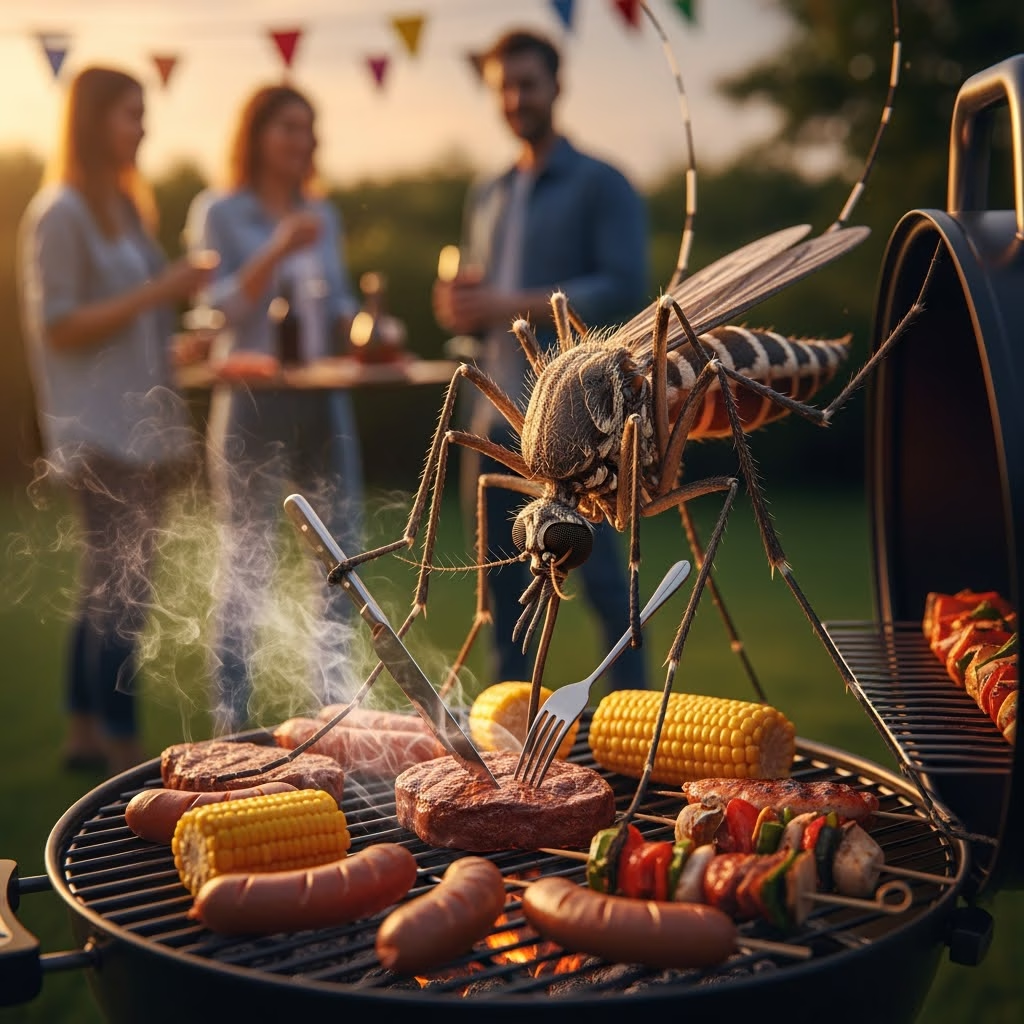Playlist
Our Recent Blog Posts
Episode #1: Mosquito Guard Q&A and Free Service Giveaway
Hey man!
Doing good, sir. Nice to see you again.
Good to see you too!
So, we’re doing another Q&A, and then a drawing as well?
That’s it, man!
All right — let’s start with the questions. Stay tuned to the end for the drawing to see who won!
First Question: What Type of Pests Do You Treat?
Our primary target is mosquitoes and biting flies.
Our products also cover spiders, aphids, gnats, wasps, and many other pests.
Comment: The essential oils in our product work especially well against spiders in areas like decks or eaves.
Second Question: Are the Treatments Safe for Children and Pets?
Yes. I’ve been using these products for almost a decade around my pets and kids without any issues.
We primarily use a combination of essential oils and synthetic products in areas where people don’t go.
Our technicians are well-trained to apply everything safely.
Once the treatment is dry, it’s safe.
It’s also in our best interest to protect both our customers and employees.
Third Question: How Long Does a Treatment Take?
It depends on the property size, number of trees, and nearby water sources.
The short answer is 5–10 minutes of spraying, followed by 30–60 minutes of drying time.
Fourth Question: Do I Need to Leave My Home During Treatment?
No, you don’t have to leave your home — and you don’t even have to be home while we treat.
Just make sure:
Gates are unlocked
Windows are closed
Toys are grouped together for better coverage
Fifth Question: How Soon Will I See Results?
You’ll notice improvement right away, with optimal results in 24–48 hours.
The essential oils help repel pests and disorient them, and the treatment typically lasts around 21 days before you may start to notice more activity.
Life Cycle Note
We spray every 21 days to break the mosquito life cycle — first to eliminate active pests, then again to catch newly hatched ones.
Quick Recap
Target pests: Primarily mosquitoes, also biting flies and stinging insects
Safe for kids and pets: Yes — stay inside during treatment and wait about 30 minutes before going out
Leave home during treatment? No — just keep windows closed and prep the yard
Results: Immediate decline, optimal after 48 hours
Drawing Segment
Welcome back! Time for our giveaway.
The prize is a free service from Mosquito Guard.
Drawing Winner: Amelia Roland
Congratulations, Amelia! We’ll reach out to schedule your service soon.
Episode #2: Service and Scheduling Q&A with Mosquito Guard
Hey Austin, welcome back!
Another video, huh?
It’s been a good week.
It has.
All right, well, we’ve got another batch of questions. Last week’s drawings went well, and this batch of comments and questions is categorized under Service and Scheduling.
I know a lot of people have questions about how our services work and how our scheduling works. We’ve gone over a couple of these questions already, but let’s reiterate them.
How Often Should I Have Pest Control Service?
It’s a really common question. The key thing is we do it about every 21 days. Depending on the weather, it might be a little bit sooner or a little bit later, but around that 21-day mark is really ideal to get the best control.
This keeps us from overapplying product — that’s the goal: being as safe as possible, getting optimal results, and reducing exposure as much as possible, even though we use minimal-risk pesticides.
Yeah, absolutely.
And I know we’ve talked at length about the life cycle, but again, that’s how we get away with using such a light product, such as botanical products. By sticking closely to that 21-day schedule, we can break the life cycle effectively — give or take a few days depending on weather and conditions.
So, 21 days — you heard it here first!
Do You Offer One-Time Treatments or Only Ongoing Plans?
Is it always a recurring service, or do you offer any one-time treatments?
We do offer one-time treatments. One-time treatments are great for events, weddings, family gatherings, or barbecues.
We’ll come out a day or two ahead of your event and apply the treatment, giving it enough time to take effect and push pests out of the area. You’ll have optimal results during your event — whether it’s three, four, or five days, or even a full week. It will still give you the best coverage for that time period.
If you’re constantly using your backyard or an outdoor space, getting on a regular service program is going to offer the best results and the most consistent protection.
Can You Spray Once and Be Covered All Year?
Not something that we offer.
I’m not saying there aren’t options like that out there, but those use different chemical classes — harsher chemicals — and we prefer not to use those.
The risk of exposure for you, your family, and even our technicians is not something we’re willing to take.
A little bit of background on the products we use: products that break down slower or don’t break down naturally in the body are considered more dangerous. That’s why we use safer products that break down quickly.
Because of that, we have to come back every 21 days to reapply and “re-up” the protection and scent barrier to keep pests away.
If we used harsher products, they’d last longer — but they’d also be more dangerous. We’d rather protect you and your family, not trade safety for convenience.
Can I Schedule Services Online?
You can reach out to us online, but direct online scheduling doesn’t work immediately.
We have a setup process to make sure we understand your property — where you spend time, where we need to treat, how we need to treat, and what products you prefer. Once that’s done, we give you the full rundown of everything we cover in these Q&As.
Once you’re signed up, you’ll get access to our customer portal, which works through our CRM. You can log in, message us, email us, see your service history, and receive notifications whenever we’re coming. Notifications are sent by email and text message, depending on your preference.
We’ve received great feedback about the customer portal — people appreciate how communicative and on-time our team is.
The portal includes:
Billing details
Service cycles
Update options for your phone number or email
We also customize notes for each property — whether your neighbors have honey bees, dogs, or other animals. It’s highly personalized to each customer.
That’s why online scheduling alone doesn’t fit — every service is custom-tailored.
When filling out your online inquiry, list key details like:
Do you have chickens or rabbits?
Any honey bee hives nearby?
Where do you keep your animals?
That helps us plan ahead and apply safely.
We’ll have to talk more about the honey bee topic later — that’s a big one!
What Is Your Response Time for Urgent Issues?
If you’re having an urgent issue with pests, especially with our services, give us a call.
We strive to be there within 24 hours or less.
If you’re having issues, let us know immediately — that helps us ensure we’re producing quality service and you’re getting the results you expect.
That’s part of our 100% satisfaction guarantee. If you’re not happy, reach out — we’ll make it right.
Absolutely.
I don’t think we’d be a very good company if we didn’t.
Sorry, you’re just going to have to deal with mosquitoes? No way!
We’ll take care of it.
Weekly Drawing Announcement
Wonderful — sounds like another good session with all the answers!
This next drawing is from our regular weekly giveaway.
If you’ve met one of our technicians walking door-to-door, signed up on our website, or reached out another way, you’re automatically entered.
Let’s draw a name and see who won that free service!
All right, let’s see here…
Looks like we got Stephanie and Andy Otto!
Congratulations — we’ll reach out to let you know you won!
To enter the next drawing, just run into us in your neighborhood or at local events. If you see the Mosquito Guard logo, stop us and ask what it’s all about — you’ll get your chance to win a free service!
Sounds good. All right, man.
Episode #3
Talking Pricing, Contracts, and Guarantees with Mosquito Guard
How you doing?
Doing good. How are you doing?
Good, man. Back for another one.
So far, this whole thing is going pretty smooth. Last week we talked about—if I’m not mistaken—treatments and services: how often we do the treatment and a few of those other things.
This week we’re talking about pricing and contracts, kind of the structure of how the business works.
How Much Does Pest Control Cost?
So, the treatments we talked about—we come back every 21 days to treat. What does that package look like?
Our general price range is $99 to $129 per service.
If you’re in Anchorage, you’ll generally have smaller areas. In Palmer, Wasilla, Big Lake, and further out toward Willow, prices typically increase since there are usually more water features and larger property sizes—with a few exceptions here and there.
The short answer: $99–$129 per service.
We do have some properties that fall around the $140–$150 mark.
For the whole season, if anyone pays at the beginning, there are typically six to seven treatments throughout the year.
Our pay-in-full plan covers seven services. Sometimes there are rollover services because of late springs or early winters, but those just roll into the next year as a credit toward your total.
We offer a 10% discount for paying in full—that’s about the only discount we do, aside from a multiple-property discount.
If you have a house in Anchorage and a cabin out in Big Lake, we’ll get both taken care of and apply roughly that 10% discount when both are signed up.
Bundle or Regular Service Discounts
Looks like we answered a question that was supposed to come later: Is there a discount for bundle or regular service?
Yep, that’s the bundle discount and regular service savings we just talked about. Hey, we’re overachieving here—getting ahead of schedule! That’s just how we do.
Are There Any Contracts or Cancellation Fees?
No obligation! It’s very straightforward.
Our service is a subscription-based plan that renews annually. The reason we do that is simple—sometimes customers pay in full or expect a visit and miss an email, or we hear, “We thought you were coming out.” So, to make it easier, it automatically renews.
You’ll always get a 5-day notification, then a 48-hour reminder, and the technicians will call when they’re on the way.
If you ever need to skip or cancel service, just let us know, and we’ll take you off the schedule—no problem.
Are There Any Guarantees or Warranties?
Absolutely—100% satisfaction guarantee.
If you have an issue, we encourage you to call us right away and let us know. That feedback helps us improve our programs, products, and training. We really appreciate hearing from customers.
We aim for a 90% reduction in mosquito populations, and we’ve been able to maintain a 3% or less re-service rate.
That small percentage is often due to things outside our control—weather, scheduling, or environmental changes—but we take those into account. If we need to come back a couple of times to beat those mosquitoes into submission, we’ll do it.
So, if you’re having a problem, don’t feel bad about calling. It helps us help you. We guarantee every service, and we’ll always come back to make sure your yard is protected.
Wrapping Up
We’ve covered pricing, discounts, contracts, and guarantees—pretty much everything for this section.
Next week, we’ll be talking about safety and effectiveness, which are big topics with lots of important questions. We’re looking forward to going over that next week.
Sounds good. Can’t wait to hear it.
Thanks again for another one—we’ll see you next time.
Episode #4: Licensing, Insurance, and Commercial Services with Mosquito Guard
Doing good, sir. Good to see you again.
Doing good. Doing good. Doing good.
All right — we’re back for another one.
Oh, I broke my pen. Live.
Aggressive.
All right, well, don’t worry about it — we’re doing it live. I got a Sharpie.
So, last week we talked about services, pricing, and a few other questions.
This week, we’re talking about licensing, insurance, and a few other business topics.
Are You Licensed and Insured?
Yes, absolutely — we are licensed and insured.
Okay, well that’s good — you kind of have to be.
This industry is regulated by a lot of different government entities, some of which aren’t exactly easy to deal with. So, we have to make sure we’re on top of our documentation, licenses, and insurance at all times.
How Long Have You Been in Business?
Since 2016.
That’s when the company very first started, and we’ve been operating ever since.
It’s worked really well. We saw that there weren’t many mosquito or pest control companies in Alaska specifically targeting mosquitoes and biting flies — the simpler pests that cause big headaches for homeowners.
We found a need, filled it, and have been helping people ever since.
Close to a decade now!
It really is a newer industry, partly because of modern products and newer equipment that make these targeted treatments possible.
So, 2025 marks nine years in business, and next year will be our 10-year anniversary!
Shout-out to everyone watching this in 2030 — we’re still going strong.
Do Your Technicians Have Certifications and Training?
Absolutely.
Almost every single one of our technicians has certification or licensing.
We do have a few exceptions — for example, new hires — but they’re given 30 days from their hire date to obtain certification.
It’s a very extensive testing process regulated by the Department of Agriculture and the Department of Environmental Conservation (DEC).
The certification program includes roughly 200 questions, broken into three main tests (actually five individual exams).
Our technicians spend:
- A few weeks of book training
- Over a week of spray training
- Product training and environmental training before ever servicing a customer
All of this is completed before the season even starts.
It’s a substantial process — we have a core test and separate category tests specific to mosquitoes, yards, foliage, and more. We go through everything to make sure our team is trained and ready.
Do You Handle Commercial Properties or Just Residential?
We handle both, but we do a lot of commercial properties.
Many restaurants in Alaska now have outdoor seating to take advantage of the beautiful weather and views.
We service decks, patios, coffee shops, restaurants, assisted living facilities, and more — anywhere people go outside in Alaska, mosquitoes go too.
Our goal is to make sure people can enjoy those spaces without being eaten alive.
For businesses, especially those that host families and kids, mosquito control helps operations run smoothly and safely.
Kids tend to have stronger reactions to bites than adults — like my youngest son, who used to get welts the size of golf balls from a single mosquito bite. Thankfully, we haven’t had that issue in years thanks to regular treatments.
And not to name names, but we also service a few daycares. Those are especially important because kids play outside around toys, slides, and playground equipment — perfect environments for wasps, hornets, and of course, mosquitoes.
We’ve even handled wedding venues — and no one wants to be on camera at their wedding, flailing their arms trying to swat mosquitoes. Said nobody ever.
Wrapping Up
Well, that’s awesome. I think that pretty much covers all the questions for this week.
We’ll probably be doing another drawing next time, and we’re pretty excited for that.
Sounds good — looking forward to it, man.
All right, see you next time.
Hopefully everyone gets those entries in!
The more people we draw from, maybe we’ll pick a few extra winners next round.
See you next time!
